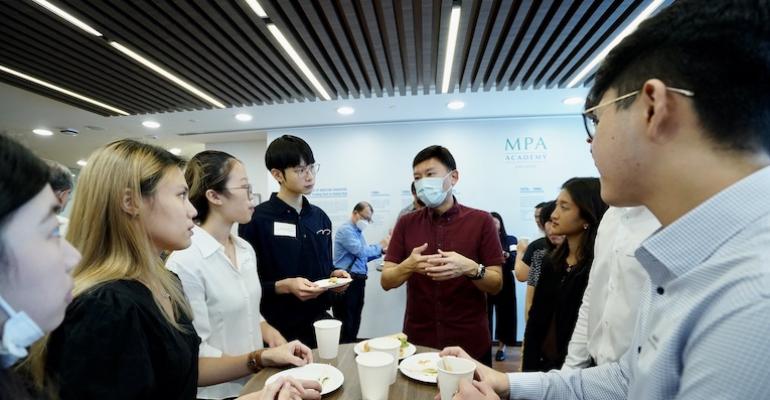As a specialised sector maritime has always had a need for highly skilled talent and as the industry faces the twin challenges of digitalisation and decarbonisation this requirement has broadened to include new skillsets not traditionally found among its workforce. It also puts it head-to-head with the likes of broader IT space where competition for talent is already extremely fierce.
With the Singapore Journal of Maritime Talent and Technology like-minded individuals from the industry have come together to discuss and profile the opportunities the sector offers not just in terms of traditional maritime careers but also for those with skills in areas such as digital technology, data analytics and AI, and how these can be used to shape the future of a truly global industry.
However, the maritime industries have always struggled when it comes to image. For the older generation that is not connected with maritime it is a sector that is often associated with being dirty and dangerous. For the younger generation looking to start a career it lacks the appeal of sectors such technology and finance, if they are really aware of maritime all. Even in a country such as Singapore where hundreds of ships are visible from the shore at anchorages and the port can be seen from the city centre, it remains a largely invisible industry that most outside of it have little knowledge or understanding of.
It is this lack of awareness of what a career in the maritime industries can offer that is a key issue - it is not so much that young people are not choosing to enter the industry as they simply don’t see it as a choice in the first place, or are aware of the opportunities it offers.
As someone who has been lucky enough to spend over 25 years covering the maritime industries as a journalist and editor I can attest to the huge range of options and challenges that are on offer as a career. My own experience is one of covering an industry I initially knew very little about and certainly had not expected to work in when I set out to become a journalist. Yet it has proved to be a highly rewarding career choice and one where I have met a huge number of highly interesting people with rich experiences, and continue to learn about new things on a daily basis. However, maritime cannot rely on people falling into it by accident as I did.
A truly global industry maritime underpins the global trade and economy - without the modern world as we know it would grind to halt. Careers can span working at sea, skilled engineering jobs ashore, broking, legal, finance, insurance and many more options. The sector’s drive to digitalise provides a whole new range of opportunities both within existing shipping organisations and exciting new start-ups. From using AI to optimise port calls and voyage planning to reduce emissions to developing high payload drones for ship deliveries and developing autonomous technologies to improve safety there is a huge array of new challenges and opportunities awaiting those who choose a career in maritime.
But to make that choice both young people and those looking for a mid-career switch need to know about the opportunities available in the first place.
That is a challenge in which Singapore invests considerable energy and resources with outreach programmes to get out to students to explain the opportunities maritime offers both through traditional in person and digital channels. There are scholarship and internship programmes with strong industry support and participation. A strong start-up community has been developed with backing from both authorities and industry offering new opportunities.
Yet that challenge to attract the best and the brightest to take up a career in the maritime industries remains. The Singapore Journal of Maritime Talent and Technology provides a platform to discuss the issues around attracting talent and draws from experience not just locally but internationally to help shape discussions in meeting this critical and ongoing challenge.
This article first appeared in the Singapore Journal of Maritime Talent and Technology. If you would like a copy of the journal email: [email protected]
Copyright © 2024. All rights reserved. Seatrade, a trading name of Informa Markets (UK) Limited.
Add Seatrade Maritime News to your Google News feed.  |

